By Alex Newman
March 21, 2023 Updated: March 21, 2023
A Uyghur woman holds a child in her home as they prepare food during the Corban Festival in Turpan County, on Sept. 12, 2016. (Kevin Frayer/Getty Images)
The United Nations agency
dealing with education and culture is under fire as the heritage system is made
“complicit” in ongoing atrocities against Uyghurs and their culture perpetrated
by the Chinese Communist Party (CCP).
According to a new report
by the Washington-based Uyghur Human Rights Project (UHRP), the CCP’s
systematic actions against Uyghur culture and heritage are part of a broader
campaign of “genocide” in the region of Western China known as Xinjiang.
Amid all of that, the
U.N. Educational, Scientific, and Cultural Organization (UNESCO), charged by
the international community with helping to protect cultural heritage around
the world, is remaining silent and even providing cover for the CCP.
“In China, heritage is
used as a soft tool of governance to control and manage history, and to steer
people’s memories, sense of place, and identities in particular ways,” the
report concludes. “When the management of heritage is used in tandem with the
hard modes of governance currently in play in the Uyghur region—ones that
states and international bodies have designated a form of genocide—then the
heritage system is complicit in those acts of genocide.”
The UHRP and its allies
around the world argue that the U.N. must speak out.
“Where is UNESCO when the
Chinese government is literally destroying the identity and culture of
Uyghurs?” asked Peter Irwin, senior program officer with the Uyghur Human
Rights Project.
Irwin, who provided
support and guidance to the authors of the report, told The Epoch Times he
thought UNESCO was refusing to speak out due to the funding it receives from
China.
“They should be publicly
speaking about it,” he added. “They understand the place they’re in. It’s a
challenging environment for them. But they should be speaking out.”
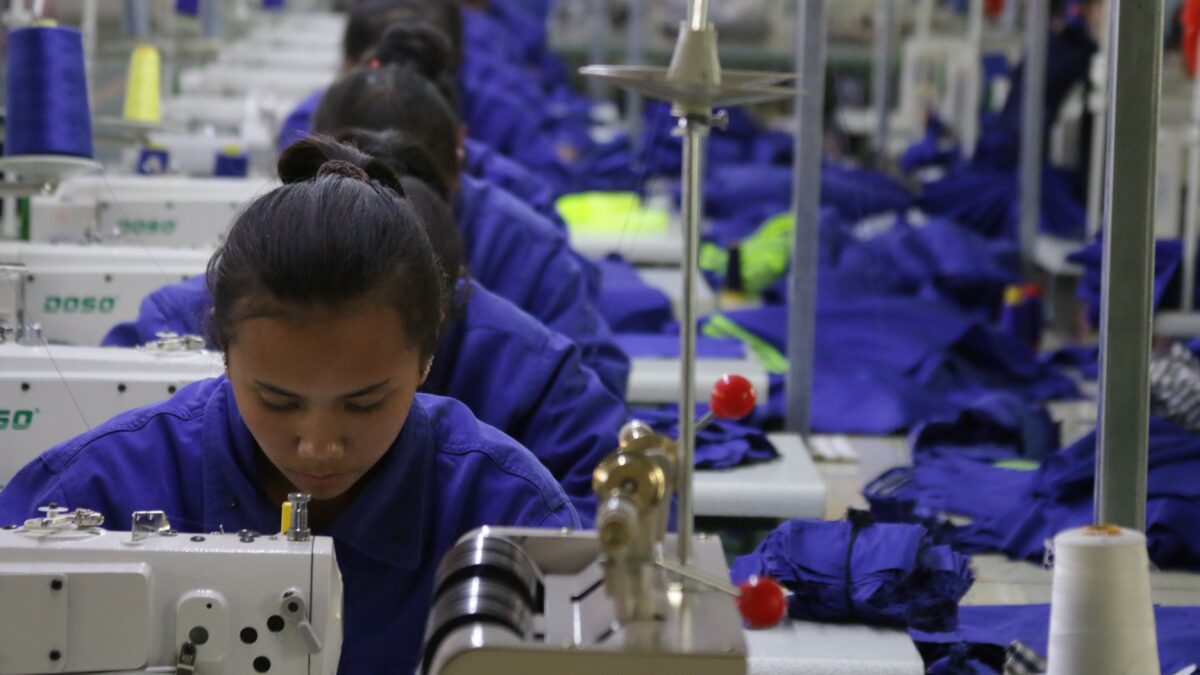
Uyghur women work in a
cloth factory in Hotan county, Xinjiang Province, China, on Apr. 27, 2019.
(Azamat Imanaliev/Shutterstock)
Citing statements from
the U.S. government and other sources, Irwin suggested that the cultural
heritage being destroyed in China documented in the report actually represents
the destruction of a people.
“Effectively, this is
genocide,” he said. “If this was any other government in the world, UNESCO
would be talking about it.”
UNESCO told The Epoch
Times that it would be up to its member states to determine what course of
action the organization takes.
Cultural Genocide?
The new report, released
last month and headlined The Complicity of Heritage:
Cultural Heritage and Genocide in the Uyghur Region, details a
systematic campaign of cultural destruction by the CCP targeting the largely
Islamic minority.
Everything that gives the
group its unique cultural identity—tradition, music, dance, religion, language,
poetry, and more—is being targeted by the CCP as UNESCO stands by in silence,
the researchers found.
These CCP attacks on
Uyghur cultural heritage include the destruction of mosques and other religious
sites, alongside restrictions on the use of regional languages, according to
the report. Hundreds or even thousands of intellectual and cultural leaders
have been imprisoned, the UHRP added.
By UNESCO’s own
standards, these actions amount to “strategic cultural cleansing,” the report
argues. Such behavior is often “inseparable” from or even a precursor to
genocide, according to experts cited in the document.
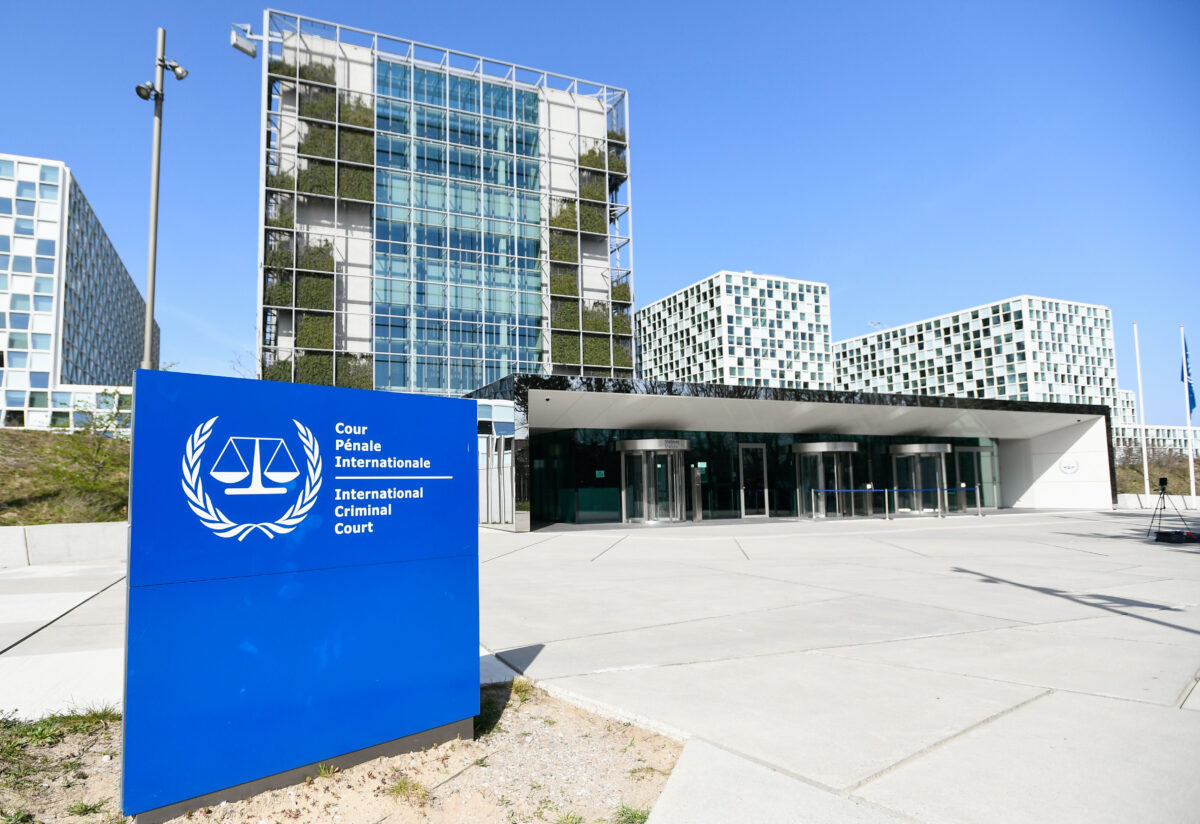
“As acknowledged by the
International Criminal Court, acts of dispossession and destruction of cultural
heritage are often the precursor to acts of genocide,” explained University of
London Professor Rachel Harris, who co-authored the report.
“Attacks on cultural
heritage, from sacred architecture to community practices and customs, are
inseparable from direct physical attacks on human beings,” Harris added. “They
are a form of cultural warfare aimed at the elimination of a people and their
identity.”
Governments and human
rights organizations, including some U.N. agencies and officials, have also
documented widespread CCP crimes against the Uyghur population over the last
decade.
These atrocities include
mass detainment in re-education camps, torture, rape, forced labor, mass surveillance,
forced sterilization, separation of families, and more, according to experts
and governments.
Estimates suggest over a
million Uyghurs and other minorities are currently detained in concentration
camps across the region.
In 2021, the U.S. State
Department even concluded that the
CCP’s actions in the region amount to “genocide” and “crimes against humanity.”
Numerous other Western governments have issued similar condemnations.
The CCP, however, claims
its actions are reasonable and necessary to deal with terrorism and extremism,
blasting those who speak out for allegedly interfering in China’s internal
affairs.
UNESCO Silent Amid Horror
Despite everything that
is known by the international community, UNESCO continues to acknowledge the
Chinese regime as the “protector” of Uyghur, Kazakh, and Kyrgyz heritage in the
region.
The U.N. agency lists a
number of key items of cultural heritage in the region, while the report
focuses on five in particular.
According to the report,
the CCP is co-opting Uyghur heritage and using it to promote “new and
revisionist understandings of history” in a way that “contributes directly to
the wider project of cultural erasure.”
According to scholars
cited in the report, the CCP effort to purge and replace Uyghur history with a
version approved by the CCP has resulted in prison and even death sentences for
those who propagate “incorrect” views of the region’s history.
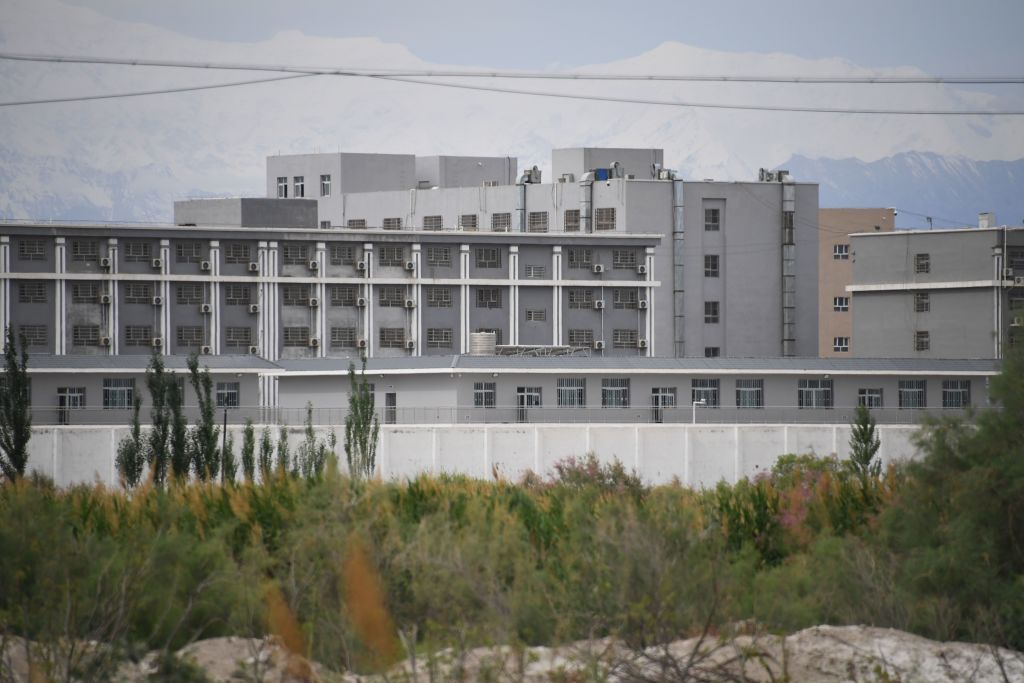
A facility believed to be
a re-education camp where mostly Uyghurs are detained in far-western China’s
Xinjiang region on June 4, 2019. (Greg Baker/AFP via Getty Images)
The regime’s goal is a
version of history that centers on a “pluralistic-unified” Chinese nation, and
it will go to great lengths in destroying or hijacking cultural heritage to
achieve that vision, the report argues. Countless families and communities have
been forced off their ancestral lands in the process.
Many Uyghurs and outside
scholars refer to the region as East Turkistan, though the CCP is seeking to
promote the narrative that the peoples of the area have always been an
inseparable part of China.
“This report was a
response to the lack of action from UNESCO,” said Irwin, the UHRP official who
worked on the document. “We wanted to document the violations and even attacks
on UNESCO-listed heritage.”
“The government itself—if
you have an understanding of the CCP—they are not fond of differences,” he
continued. “They want everybody to look the same, speak the same language. They
think that reduces conflict. That policy has existed for decades, but it really
got much more intense starting 10 years ago when Xi Jinping came to power.”
Considering its mandate
to preserve cultural heritage, UNESCO has a “responsibility” to act, Irwin
continued in a phone interview. And yet, it is “totally failing to ensure that
China protects this priceless intangible cultural heritage,” he said.
“The secretary-general
hasn’t said a word on these Uyghur issues, either,” he added.
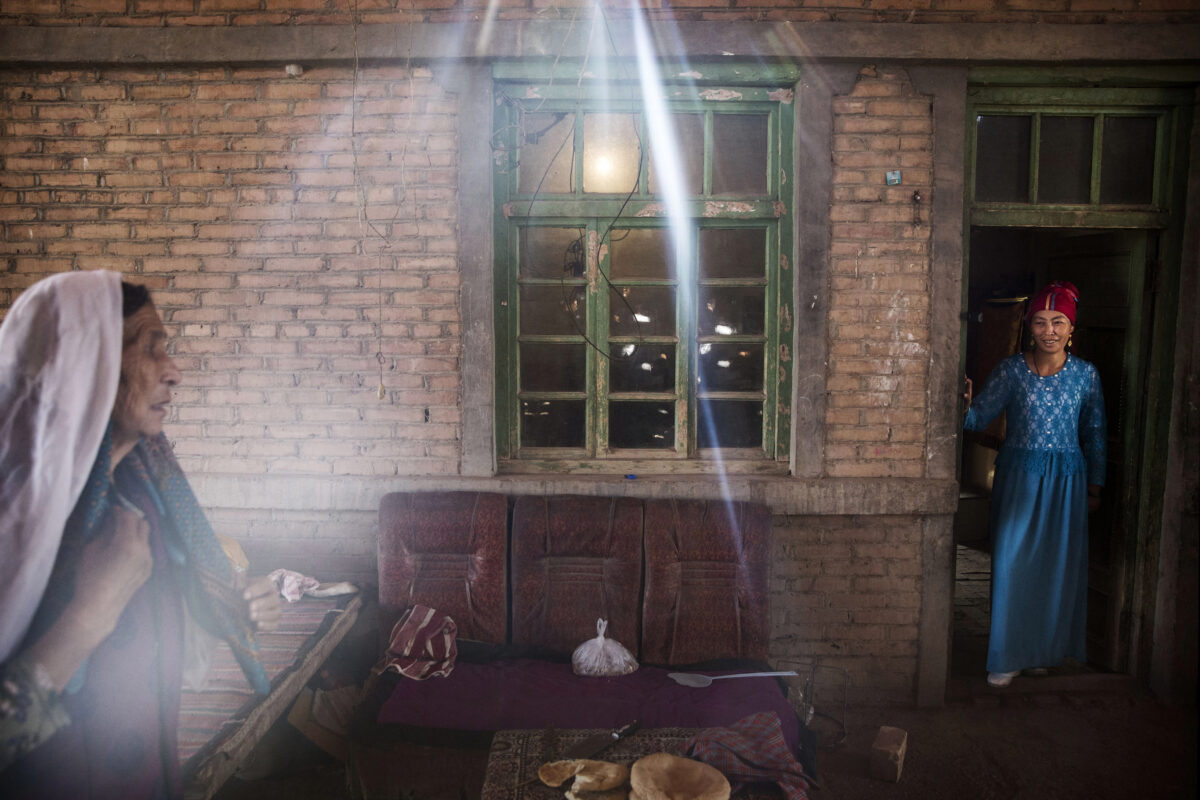
Uyghur women wait for
visitors to join for a holiday meal during the Corban Festival in Turpan
County, in the far western Xinjiang province, China, on Sept. 13, 2016. (Kevin
Frayer/Getty Images)
What is happening is in
fact a genocide, Irwin said, adding that the ongoing destruction of mosques and
targeting of religious and cultural leaders is only one element.
“This is all part of a
larger context of abuses and genocide,” Irwin said, noting that no other
government in the world could get away with what the CCP is doing and not be
condemned by UNESCO and other U.N. agencies.
Recommendations for UNESCO and Others
Among other
recommendations, the UHRP called for senior U.N. officials to urge UNESCO to
provide a more effective response to the abuses.
The organization also
encouraged U.N. member states to initiate actions under international
agreements on culture that the CCP has signed.
Irwin suggested that U.S.
policymakers should be more involved in the debates at the U.N. rather than
allowing the CCP to dominate.
Currently, the U.S.
government is not a member of UNESCO. Following in the footsteps of President
Ronald Reagan, President Donald Trump ordered a U.S. withdrawal from the
organization, citing anti-Semitism, extremism, and corruption among its
leadership and in its decisions.
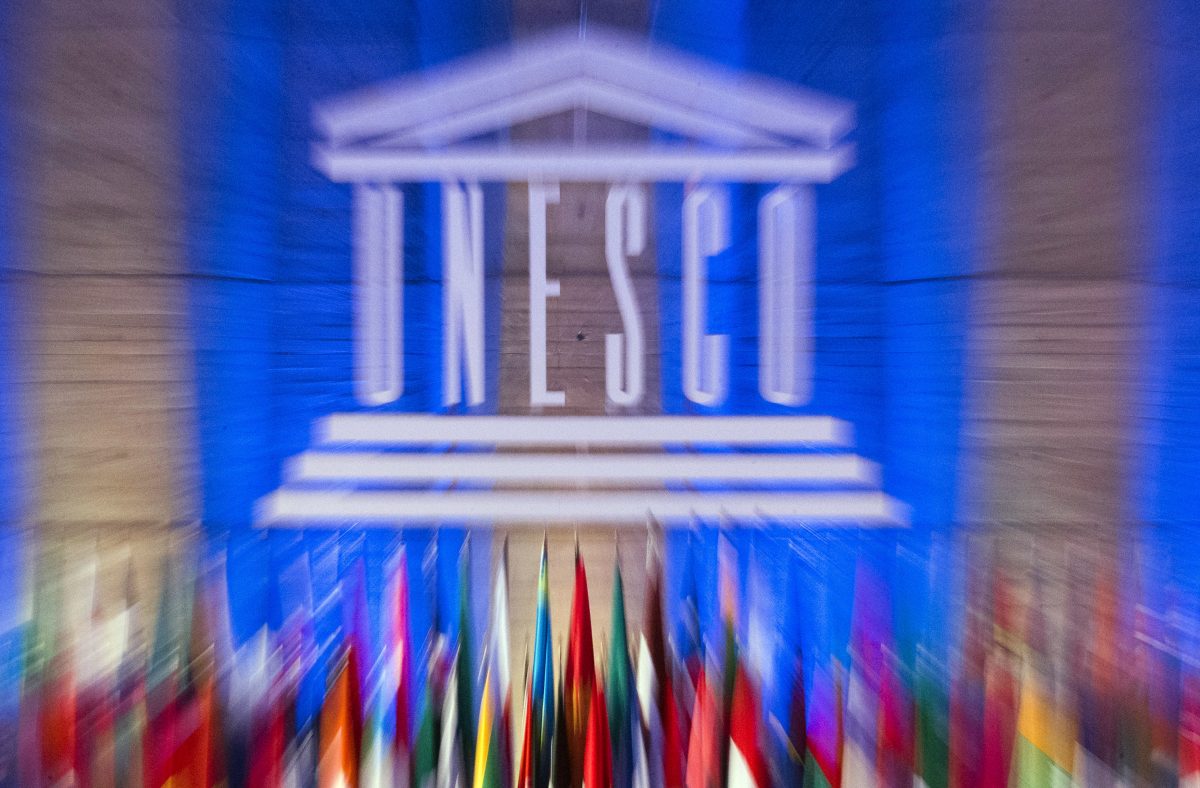
The logo of the United
Nations Educational, Scientific and Cultural Organization (UNESCO) is seen in
Paris on Nov. 12, 2013. (Jacques Brinon/AP Photo)
“I don’t think UNESCO is
fixable,” former U.S. Assistant Secretary of State for International
Organization Affairs Kevin Moley told The Epoch
Times, noting that the agency’s policymaking had “largely been taken over by
the CCP and its allies.”
The Biden administration
and some of its allies in Congress were hoping to get the U.S. government
involved again, this paper reported in late
2021.
But under federal laws
signed by Presidents George Bush and Bill Clinton, the U.S. government is also
banned from funding the U.N. agency over its decision to admit the “State of
Palestine” as a member.
The Epoch Times reported in 2020
that multiple senior officials and analysts have expressed grave concerns over
what they describe as a CCP “takeover” of the U.N. and its agencies, with Moley
referring to it as “the greatest existential threat to our republic since our
founding.”
But Irwin and the UHRP
say that the U.S. government can still play a helpful role with regard to the
cultural destruction taking place in Xinjiang.
“Given that the U.S.
government has described what is happening as genocide and crimes against
humanity, there is an obligation for policymakers to follow up,” he said,
calling for an “atrocity prevention task force” or some similar body to get
involved.
Other governments should
speak out, too, he said, adding: “There should be a lot more visible public
advocacy.” But there are complicating factors.
Irwin argued that one of
the CCP’s goals was to “pacify” the region to facilitate its “Belt and Road”
trade initiative connecting China to the rest of Eurasia and beyond.
That same Belt and Road
plan, along with the opportunities it brings for other governments in the
region and growing CCP influence, is among the reasons why
governments—including nearby Islamic governments such as Pakistan—have been so
reluctant to speak out.
“They made it very clear
that they have chosen the side of China despite what’s happening to the Islamic
population in China,” Irwin said. “Trade and money are the overriding factors.”
Many of those governments
have their own human rights issues as well, he added.
UNESCO Action
Irwin said there would be
more work in the next few months to get state parties to the World Heritage
Convention to speak up.
“UNESCO as a body is
limited if they don’t get support from governments,” he continued, noting that
UNESCO is not unique in failing as member states have “an obligation” to use
the mechanisms at their disposal to address this.
A spokesman for UNESCO
deflected blame, pointing to member states of the international body as the
decision-makers.
“UNESCO wishes to
underline the importance attached to inclusion and respect for communities in
the management of inscribed sites and elements, as is clearly set forth in the
texts of its Conventions,” said the spokesman, pointing to the World Heritage
Convention and the Intangible Heritage Convention that govern these issues
internationally.
“The practice and
procedure is that when UNESCO receives precise and credible information about a
specific element inscribed on a UNESCO list, this information is shared with
the concerned Member States, so as to bring both the information shared by
civil society and the Member State’s response—if any—to the attention of the
appropriate Committee,” added the spokesman, who said it was UNESCO policy not
to have comments attributed to a particular individual.
“It is then for member
states of the respective committees to assess the situation and take
appropriate [action],” he said.
It is not the first time
the CCP has come under fire for these issues. Last August, then-U.N. High
Commissioner for Human Rights Michelle Bachelet released a report finding that
CCP abuses against Uyghurs may constitute “crimes against humanity.”
While governments on the
U.N. Human Rights Council failed to approve a proposal to debate the issue,
numerous prominent human rights organizations urged Western governments to
pursue accountability for the alleged crimes perpetrated by the CCP.
Uyghurs and Muslims are
among many people groups that experts and human-rights monitors say are
persecuted by the CCP. Other victims include practitioners of Falun Gong,
Christians, Tibetans, and more.
The CCP’s Foreign
Ministry did not respond by press time to requests for comment from The Epoch
Times.
In a press conference
last month, however, CCP Foreign Ministry spokesman Wang Wenbin dismissed
reports of human rights violations in Xinjiang.
“The so-called
‘violation’ or ‘repression’ of human rights is the lie of the century
propagated by anti-China forces and has long been debunked by facts,” he was
quoted as saying in news reports. “We once again urge parties concerned to look
at Xinjiang’s strong socioeconomic development in an objective light, stop
using Xinjiang-related issues for political manipulation and stop meddling in
China’s internal affairs.”
https://www.theepochtimes.com/un-cultural-agency-under-fire-over-ccp-atrocities_5139199.html
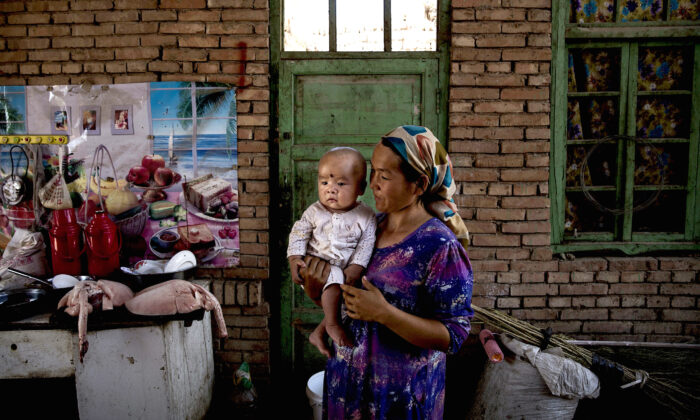
No comments:
Post a Comment